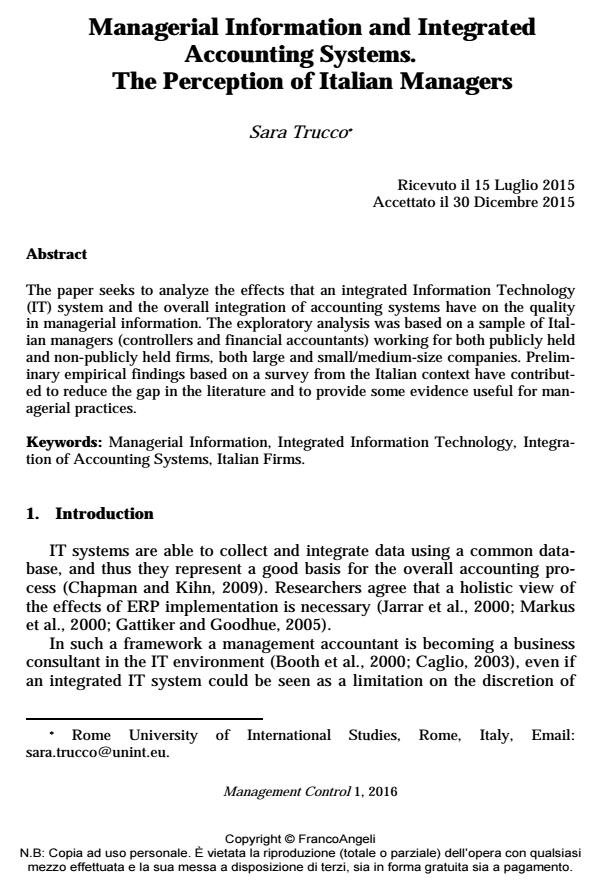Managerial Information and Integrated Accounting Systems. The Perception of Italian Managers
Titolo Rivista MANAGEMENT CONTROL
Autori/Curatori Sara Trucco
Anno di pubblicazione 2016 Fascicolo 2016/1
Lingua Inglese Numero pagine 14 P. 91-104 Dimensione file 110 KB
DOI 10.3280/MACO2016-001006
Il DOI è il codice a barre della proprietà intellettuale: per saperne di più
clicca qui
Qui sotto puoi vedere in anteprima la prima pagina di questo articolo.
Se questo articolo ti interessa, lo puoi acquistare (e scaricare in formato pdf) seguendo le facili indicazioni per acquistare il download credit. Acquista Download Credits per scaricare questo Articolo in formato PDF

FrancoAngeli è membro della Publishers International Linking Association, Inc (PILA), associazione indipendente e non profit per facilitare (attraverso i servizi tecnologici implementati da CrossRef.org) l’accesso degli studiosi ai contenuti digitali nelle pubblicazioni professionali e scientifiche.
The paper seeks to analyze the effects that an integrated Information Technology (IT) system and the overall integration of accounting systems have on the quality in managerial information. The exploratory analysis was based on a sample of Italian managers (controllers and financial accountants) working for both publicly held and non-publicly held firms, both large and small/medium-size companies. Preliminary empirical findings based on a survey from the Italian context have contributed to reduce the gap in the literature and to provide some evidence useful for managerial practices.
Parole chiave:Managerial Information, Integrated Information Technology, Integration of Accounting Systems, Italian Firms
- L'utilizzo dei dati contabili per la pianificazione economico-finanziaria: sviluppo della conoscenza e supporto decisionale Claudia Presti, Nicola Castellano, Luciano Marchi, in MANAGEMENT CONTROL 3/2021 pp.16
DOI: 10.3280/MACO2021-003002
Sara Trucco, Managerial Information and Integrated Accounting Systems. The Perception of Italian Managers in "MANAGEMENT CONTROL" 1/2016, pp 91-104, DOI: 10.3280/MACO2016-001006